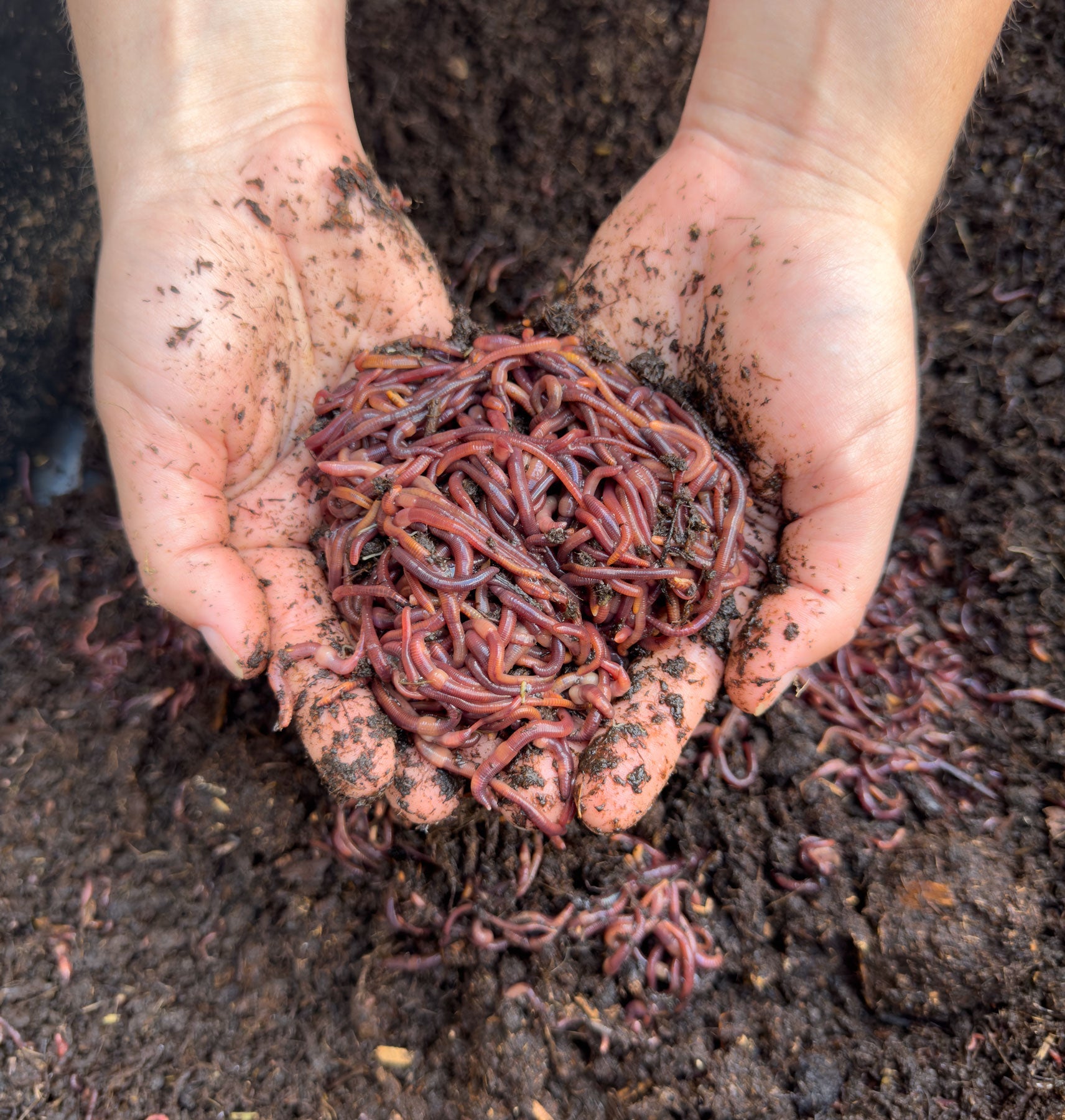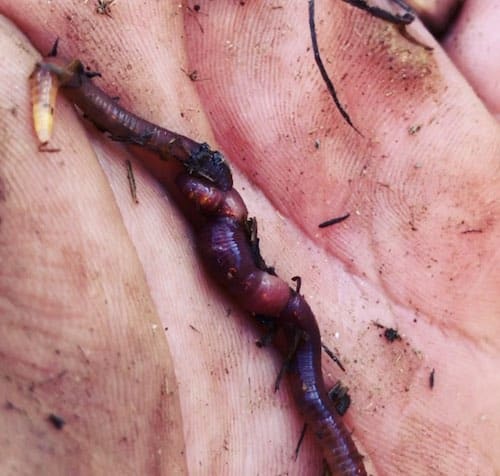Red Wigglers 101: Everything You Need to Know for Thriving Gardens
Red wigglers, or Eisenia fetida, play an important function in lasting horticulture techniques, offering as effective decomposers that transform natural waste right into important vermicompost. Understanding their habitat, dietary preferences, and the myriad advantages they provide can change your horticulture technique (Red Wiggler Express). As these worms grow in details conditions, their treatment and monitoring are necessary for maximizing their contributions to soil health and wellness. The question remains: what actions can you take to harness the full capacity of these exceptional microorganisms in your own yard?
Understanding Red Wigglers

Red wigglers prosper in environments rich in organic product and wetness. Red Wiggler Express. They have a special digestion system that allows them to process food scraps promptly, excreting spreadings that are packed with crucial nutrients such as nitrogen, phosphorus, and potassium. These castings improve dirt structure, boost water retention, and foster advantageous microbial activity, all of which add to durable plant health
Additionally, red wigglers can endure in diverse conditions, making them versatile to numerous horticulture practices, consisting of interior and outdoor composting systems. Their ability to take in huge quantities of organic waste day-to-day placements them as valuable allies for both home gardeners and business growers. By incorporating red wigglers into gardening efforts, one can significantly enhance soil fertility and support sustainable gardening practices.
Perfect Habitat for Red Wigglers
Creating an optimal environment for red wigglers is important for maximizing their composting abilities and overall wellness. Red wigglers thrive in wet, dark, and well-aerated habitats, which closely resemble their native environments in leaf litter and rotting natural issue. An appropriate habitat should provide a temperature range in between 55 ° F and 77 ° F(13 ° C to 25 ° C), as severe temperatures can stress or hurt the worms.
The bedding material, such as shredded paper, cardboard, or coconut coir, ought to be maintained wet yet not excessively wet, as extreme moisture can lead to anaerobic problems damaging to worm health. Additionally, a pH degree in between 6.0 and 7.5 is excellent, ensuring a well balanced setting.
Appropriate oygenation is just as crucial; it permits oxygen flow and avoids the buildup of harmful gases. A container or bin developed for vermicomposting should have water drainage holes to remove excess moisture and advertise air flow. Regular tracking of these conditions is essential for keeping a prospering red wiggler population, inevitably improving their effectiveness in damaging down organic waste and enhancing garden dirt.
Dietary Requirements and Preferences

Red wigglers display certain preferences; they are particularly keen on softer, disintegrating products over tougher or even more coarse compounds. image source It is important to stay clear of feeding them citrus peels, onion, and garlic in huge amounts, as these can be harmful. Furthermore, meat, dairy, and oily foods should be excluded, as they can attract insects and produce undesirable odors.
(Charlotte NC Worms For Sale)To maintain ideal health and wellness, a well balanced mix of eco-friendly and brownish materials is suggested. Environment-friendly materials, such as veggie scraps, provide nitrogen, while brownish products, like cardboard and dried leaves, supply carbon. Monitoring the wetness content and making certain a consistent food supply will additionally enhance their growth and composting capacities. By accommodating their dietary demands, gardeners can promote a growing population of red wigglers in their garden compost systems.
Benefits of Utilizing Red Wigglers
The remarkable advantages of making use of red wigglers in horticulture prolong far beyond their role in composting. These flexible microorganisms add significantly to soil health and wellness, enhancing vitamins and mineral accessibility and promoting microbial task. By freshening the dirt as they tunnel, red wigglers improve drainage and root penetration, creating an optimal setting for plant growth.
Additionally, red wigglers are effective recyclers of organic waste, transforming it into nutrient-rich spreadings that act as an outstanding natural plant food. These castings include valuable microbes and essential nutrients, such as nitrogen, phosphorus, and potassium, which are crucial for plant advancement. The sluggish release of nutrients from worm spreadings guarantees a steady supply, decreasing the danger of nutrient leaching and promoting lasting gardening practices.
In addition, the visibility of red wigglers can assist suppress soil-borne plant illness. Their gastrointestinal procedures create substances that prevent dangerous microorganisms, therefore boosting plant wellness. Utilizing red wigglers promotes a more sustainable gardening method by decreasing reliance on chemical plant foods and advertising a closed-loop system, where waste is transformed into beneficial resources. Overall, integrating red wigglers right into horticulture practices provides a plethora of environmental and farming benefits.
(Lake Rhodhiss Bait)
Composting With Red Wigglers

To start a successful vermicomposting system, choose an ideal container with proper ventilation and drain. The suitable environment for red wigglers consists of a moist, dark setup with temperature levels between 55 ° F and 77 ° F. Begin by layering shredded paper, cardboard, and food scraps, making sure a well balanced mix of carbon and nitrogen-rich materials.
Red wigglers flourish on veggie peels, fruit scraps, coffee grounds, and eggshells, while staying clear of meat, milk, and oily foods that can bring in bugs. Frequently check dampness degrees; the bed linens ought to be wet but not soggy. Harvest worm castings every few months by separating the worms from the compost, which can then be made use of straight in gardens or kept for later usage.
Carrying out vermicomposting not only decreases garbage dump waste however likewise enhances garden soil, advertising healthy and balanced plant growth and sustainable horticulture techniques. Welcome this eco-friendly method to enhance your gardening undertakings.
Verdict
In summary, red wigglers are important microorganisms for improving yard efficiency through effective composting. By utilizing red wigglers, gardeners can dramatically boost soil quality and nutrient schedule, promoting healthier plant growth.